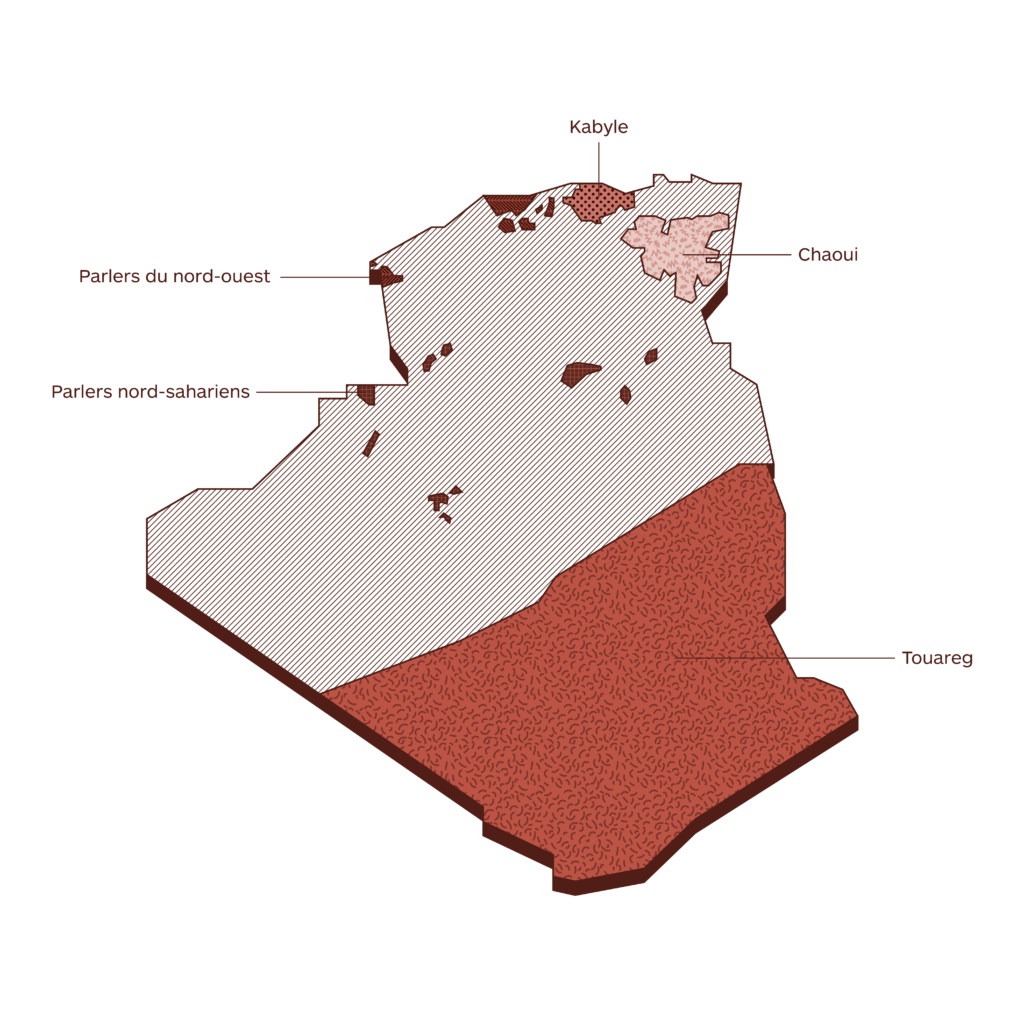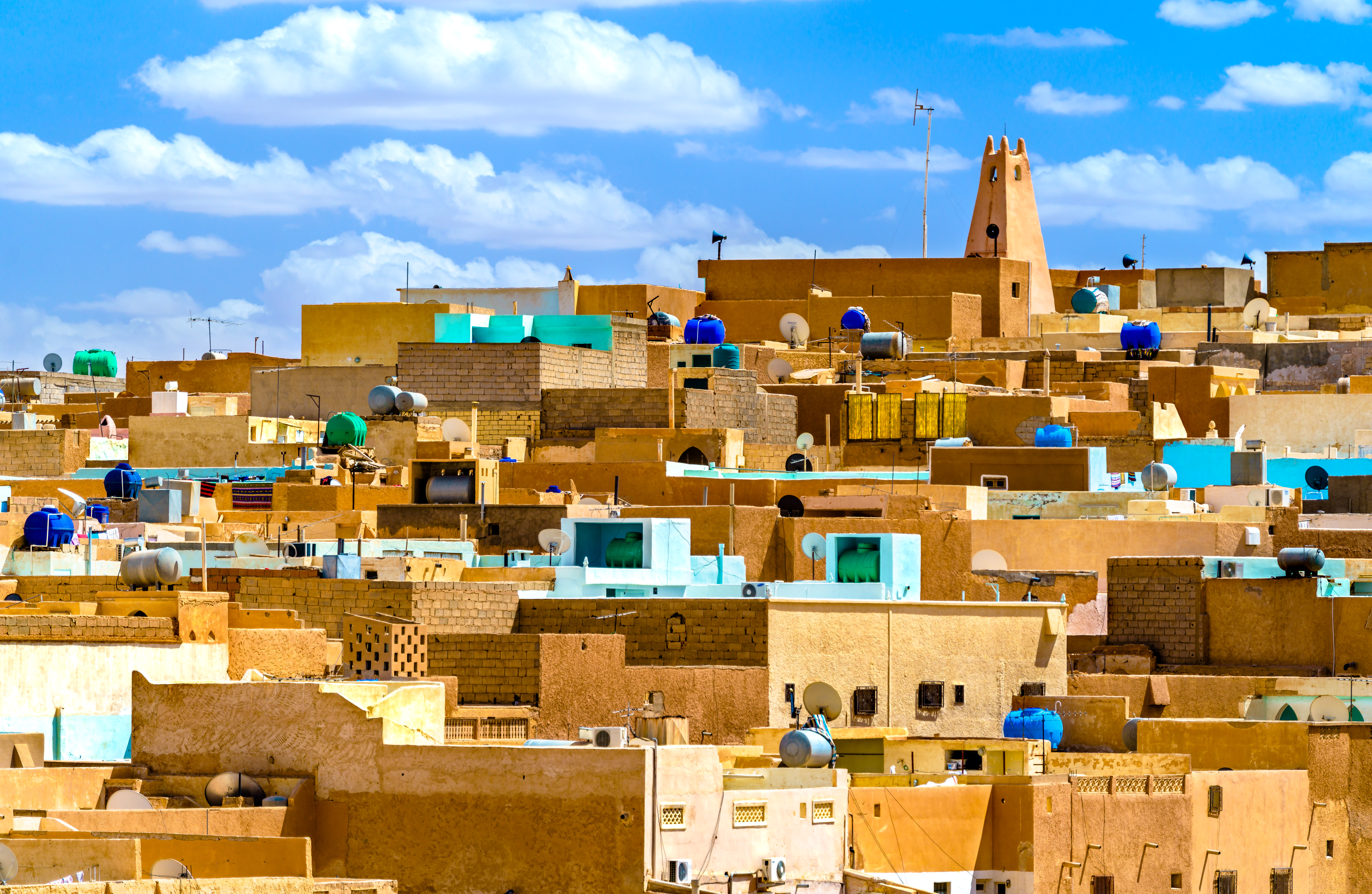Africa
To which language should you translate to localize in Algeria?
LANGUAGE INSIGHT
Official language
Arabic (72%; 32.8 mln)
Actual languages
Arabic (72%; 32.8 mln), Berber (26%; 11.8 mln), French (1.5%; 684k), other (0.5%; 228k)
What the top 150 best localized websites in the world do in Algeria
(Top 150 websites listed in the Global by Design ranking – published annually by Byte Level Research, this report provides a list of globally localized websites, showcasing best practices and emerging trends in their globalization)
- 20/150 localizes by translating into French
- 9/150 localize by translating into Arabic
- 8/150 localize by translating into both Arabic and French
- 1/150 localizes by translating into both French and Portuguese
-
3M
-
ABB
-
Accenture
-
Adidas
-
Adobe
-
Airbnb
-
Aldi
-
Amazon
-
American Airlines
-
American Express
-
Apple
-
Audi
-
Autodesk
-
Avis
-
Bayer
-
BMW
-
Booking.com
-
Bosch
-
British Airways
-
Bumble
-
Burberry
-
BYD
-
Canon
-
Capgemini
-
Cartier
-
Caterpillar
-
Chevrolet
-
Cisco Systems
-
Citibank
-
Coca-Cola
-
Costco
-
Dell
-
Deloitte
-
Delta
-
DHL
-
Disney+
-
Dyson
-
eBay
-
Eli Lilly
-
Emirates
-
Ernst & Young
-
Facebook
-
FedEx
-
Ford
-
Four Seasons
-
Fujifilm
-
GE
-
Gillette
-
GoDaddy
-
Google
-
Gucci
-
Haier
-
Heineken
-
Hermès
-
Hertz
-
Hilton
-
Hisense
-
Hitachi
-
Honda
-
Hotels.com
-
HP
-
HP Enterprise
-
HSBC
-
Huawei
-
Hyatt
-
Hyundai
-
IBM
-
IKEA
-
Intel
-
InterContinental Hotels
-
J&J
-
Jack Daniel's
-
Jehovah’s Witnesses
-
John Deere
-
Kellogg's
-
Kia
-
KPMG
-
L'Oréal
-
Land Rover
-
LEGO
-
Lenovo
-
Lexus
-
LG
-
Louis Vuitton
-
Lululemon
-
LUSH
-
Marriott
-
MasterCard
-
McDonald's
-
Mercedes-Benz
-
Merck
-
Microsoft
-
Mitsubishi Electric
-
Nestlé
-
Netflix
-
Nike
-
Nikon
-
Nintendo
-
Nio
-
Nissan
-
NIVEA
-
Oracle
-
Pampers
-
Panasonic
-
PayPal
-
Pepsi
-
Pfizer
-
Philips
-
Pitney Bowes
-
Porsche
-
Procter & Gamble
-
PWC
-
Revolut
-
Rolex
-
Royal Caribbean
-
Salesforce
-
Samsung
-
Sanofi
-
SAP
-
Sephora
-
Shopify
-
Siemens
-
Sony
-
Spotify
-
Starbucks
-
Steelcase
-
Stripe
-
Subaru
-
Tesla
-
The Church of Jesus Christ of Latter-day Saints
-
Tiffany
-
Tinder
-
Toshiba
-
Toyota
-
TripAdvisor
-
Uber
-
United Airlines
-
UPS
-
Visa
-
Volkswagen
-
Volvo Cars
-
Vrbo
-
Walmart
-
Western Union
-
Wikipedia
-
Wise
-
WordPress
-
Workday
-
Xerox
-
Xiaomi (Mi)
-
Zara
-
Zoom
If you need others information, below you can find a selection of economic/social/cultural data
Overview
Language
Official language
Arabic (72%)
T-index
0.13%
T-Index ranks countries according to their potential for online sales.
Other languages
Berber (26%), French (1.5%), other (0.5%)
French, though it has no official status, is widely used in government, culture, media (newspapers) and education (from primary school), due to Algeria’s colonial history.
Most studied language
French
English
Low proficiency (EF) – 78 of 116 countries/regions in the world- 10/24 position in Africa
Demography
Capital: Algiers
Currency: Algerian dinar
Population: 45,60 mln
Population density: 19/km2
Economy
GDP: 239.9 billion USD (2023)
GDP per capita: 5,260.21 USD (2023)
Exports: $58.6 billion (2022)
Statistics
Internet users: 72.9% penetration, 33.49 million
Unemployment rate: 12% (2022)
Urbanisation: 75% (2023)
Literacy: 81.13% (2019)
Conventions
Numbering system
Arabic numerals and comma as decimal separator
Date format: dd – mm – yyyy
Time: 24h time system
Country code: 00213
Language data sources: Worldatlas/Britannica//EF/Wikipedia; Demography data sources: IMF/Worldometers; Conventions data source: Wikipedia; Economy data sources: WTO/OEC/CIA/Esomar/Datareportal; Statistics data sources: Datareportal/WorldBank/UN/UNESCO/CEIC/IMF/Culturalatlas/Commisceoglobal/Worlddata.info
Facts and data
Economy
Imports
$34.2 billion (2022). Wheat ($2.66B), Concentrated Milk ($1.62B), Corn ($988M), Iron Ore ($934M), and Soybeans ($923M), importing mostly from China ($6.27B), France ($4.69B), Italy ($2.3B), Turkey ($2.06B), and Brazil ($1.92B).
Financial inclusion factors (over 15 years of age)
• 44.1% have an account with a financial institution
• 2.8% have a credit card
• 6% make online purchases
Ease of doing business
Ease of conducting business is below average (rated 48.6 out of 100) ranked 16th out of 20 North African and Middle Eastern countries and 157th out of 190 countries worldwide (2023, World Bank)
Exports
$58.6 billion (2022). Petroleum Gas ($27.4B), Crude Petroleum ($16B), Refined Petroleum ($8.62B), Nitrogenous Fertilizers ($2.1B), and Ammonia ($1.27B), exporting mostly to Italy ($16.9B), Spain ($7.11B), France ($6.99B), United States ($3.15B), and South Korea ($2.96B).
Main local online stores
uedkniss.com, aliexpress.com, amazon.com, mawdoo3.com
Economic freedom
‘Repressed’ (rated 43.9 out of 100)ranked 13th out of 14 Northern African and Middle Eastern countries and ranked 164th out of 184 countries worldwide (2023, Heritage Foundation and Wall Street Journal).
Global Innovation Index
Ranked 18th out of 18 North African and Middle Eastern countries, 119th out of 132 worldwide.
The Global Innovation Index captures the innovation
ecosystem performance of 132 economies and tracks the most recent global innovation trends.
Economy data sources: WTO/OEC/CIA/Esomar/Datareportal
Service Imports (2016)
Service Exports (2016)
Source: OEC
Trade balance of goods from 2013 to 2023
Source: Statista
Historical Data Trade Imports (2016)
The following section uses historical trade imports from partners of Algeria.
Historical Data Trade Exports (2016)
The following section uses historical trade data exports from partners of Algeria.
Source: OEC
The Top Export Opportunities for Algeria by Relatedness
Relatedness measures the distance between a country's current exports and each product by showing only products that Algeria is not specialized in.
Algeria's Most Complex Exports
The Product Complexity Index (PCI) measures the knowledge intensity of a product by considering the knowledge intensity of its exporters.
Source: OEC
Algeria's Most Specialized Products
Specialization is measured using Revealed Comparative Advantage (RCA), an index that takes the ratio between Algeria observed and expected exports in each product.
Source: OEC
Market Growth Imports (2016)
This score represents the likelihood that the given country will start importing that product in the next few years. It forecasts the opening of a new specific market.
Market Growth Exports (2016)
This score represents the likelihood that the given country will start exporting that product in the next few years. It forecasts the opening of a new specific market.
Source: OEC
Foreign direct investment, net inflows (% of GDP)
Source: WorldBank

T-index
Reach most of the online purchasing power
T-Index ranks countries according to their potential for online sales. It estimates the market share of each country in relation to global e-commerce.
Try it nowMedia
Media language
Arabic, French, and Tamazigth
Information channels
The Algerian media are less free and less diverse than in some other North African countries. The authorities have blocked websites and detained journalists since the start of the Hirak protest movement in early 2019.
Press freedom has been further restricted following a 2023 law passed by the country’s parliament. The measure tightens media ownership rules and empowers courts to force journalists to reveal their sources.
Domestic media outlets are banned from receiving overseas funding and dual-nationals prevented from owning press or broadcasting companies.
Parliament has also passed a law criminalising fake news.
Privately-owned channels receive the lion’s share of viewers. State TV and radio steer clear of critical voices and dissenting views.
Popular privately-owned satellite TV channels operate alongside the state broadcaster. Officials aim to regularise the status of “offshore” private TV stations, which use foreign-owned satellites and do not fall under Algerian law.
With the exception of online stations, the state has a monopoly in the radio sector.
Foreign media are also subject to government interference. In 2021, the government withdrew France 24’s authorization to operate and revoked the accreditation of Saudi media outlet Al Arabiya.
The press
The written press in Algeria publishes in three languages: Arabic, French and Tamazight. The majority of print publications are privately owned. The print press also publishes online, on a daily basis, except for on Fridays (public observation of the Islamic holy day).
El Khabar – Arabic-language newspaper
Echourouk – Arabic-language newspaper
El Massa – Arabic-language newspaper
El Moudjahid – French-language newspaper
El Watan – French-language newspaper
The North Africa Journal – English language news site covering North Africa and the Sahel
Twala – French language independent news website set up by Algerian journalists
24H Algerie – A French and English language independent news website
Television
Echourouk TV – Arabic language satellite television channel
Ennahar TV – Arabic language satellite television channel
Algerie 3 – TV news channel run by the state owned broadcaster EPTV
El Bilad TV – Arabic language satellite television channel
Radio
Radio Algérienne – public radio broadcaster, it manages three national broadcast stations
Radio Corona Internationale – US-based internet radio news channel offers a mix of music, news and commentary in Arabic and French
Media data source: BBC
Internet Data
Internet users
72.9% penetration, 33.49 million
Share of web traffic by device
69.36% mobile phones, 29.09% computers (laptops and desktops), 1.50% tablet devices and 0.06% other devices.
Median speed of mobile Internet connection
21.36 Mbps
Median speed of fixed Internet connection
12.32 Mbps
Mobile connection as a percentage of the total population: 110.2%
Share of cellular mobile connections that are broadband (3G, 4G, 5G): 87.9%
Most popular web search engines
Google (97.74%), Bing (1.59%), Yahoo! (0.25%) Yandex (0.23%), DuckDuckGo (0.09%), other (0.11%)
Most used social media
Facebook (65.17%), YouTube (18.4%), Instagram (9.3%), Twitter (5.65%), Pinterest (1.1%), LinkedIn (0.18%), Reddit (0.15%), other (0.06%).
Internet data sources: Datareportal/Statcounter
Social statistics
Life expectancy
77 years (2022)
Gender
In Algeria, men have all the rights and, moreover, the political powers instruct women to follow the “family code of conduct” which limits their freedom. Women are not welcome in places that are reserved for men, such as movie theatres, cafes, bars, or soccer stadiums. This attitude is also seen in the workplace, which is male-dominated. Women’s skills are underestimated and there are many difficulties associated with working in mixed-gender groups. Women working in areas outside of education or the health and secretarial sectors are seen as intruders.
Class
After living for more than 30 years under a socialist regime, which promoted equality, Algerians are having trouble adapting to the current way of life. Following the political changeover and the adoption of the market economy, society was hit hard by an economic crisis. This has resulted in a class system (the rich, middle class, and poor), and the poor are currently in the majority. For the average Algerian, economic conditions rather than social factors determine class.
This new situation has led employers to take a very authoritarian attitude. Employees have less protection and are slaves to the job market, unemployment rates, and their employers’ moods.
Current health expenditure
5.53% of GDP
Education expenditure
85.5% of total expenditure in public institutions (2023).
Corruption perceptions Index
Algeria scored 33 out of 100, ranked 116 out 180 countries worldwide.
The CPI measures the perception of corruption due to the difficulty of measuring absolute levels of corruption.
CO2 emissions
3.72 metric ton per capita (2020)
Ethnicity
Ethnologically, Algeria is not very diverse. Algerians are very aware of the fact that the population is 75% Arabic and 25% Berber. Yet, the Arab majority tends to marginalize the Berbers, which provokes a strong defensive reaction from the Berbers. It should be noted that there has been progress in making Berber the second national language, although it is not yet official. The impact of ethnicity on work relations is not very significant. Both ethnic groups work together without any problems. As in any workplace, groups, cliques, and friendships are formed based on different reasons such as ethnic, regional, or tribal affiliations. In Algeria, business relations do not generally need to flow from already established personal relations; they are based on economic criteria alone. Nevertheless, that does not mean that this will not happen and personal relations may lead to other business opportunities with different business partners. It is also helpful to be recommended or referred by someone who knows the person with whom you want to conduct business personally. Trust will build quickly.
Religion
The Muslim religion has a large place in everyday life in Algeria. It is what assists and guides interpersonal relations, yet in the larger cities (Algiers, Oran, Annaba), Western influence, and the French culture in particular, is very noticeable. Algerians avoid making negative judgments about their religion and are attached to it even if they are not necessarily very devout. In terms of the workplace, the weekend in Algeria was changed to Thursday and Friday (from Saturday and Sunday), due to religious considerations. Prayer sessions are held five times daily and play an important role for Muslims. Work hours are set according to economic needs and not according to prayer hours. Muslims may accumulate their prayers and do them all at once in the comfort of their own homes. Employees must also follow the workplace dress code.
World Happiness Index
Algeria ranked 96 out of 146 countries, with a score of 5.122
The World Happiness Index measures happiness based on respondent ratings of their own
Social statistics sources: WorldBank/UN/UNESCO/CEIC/IMF
Algeria urban-rural (2018)
Sources: WorldBank
Tertiary education in Algeria
Tertiary education in Algeria, by sex
Source: UNESCO
The Data Factbook is a work in progress project. Our community is helping us to fill it up always with new and updated data. Your contribution is precious. If you want to help us, please write your advices at imminent@translated.com
Country Curiosities
In Algeria, the official languages, Arabic and Berber, beautifully reflect the nation’s diverse cultural tapestry. Algerian Arabic dominates administration and education, enjoying greater prestige since a 2002 constitutional amendment. Meanwhile, Berber, known as Tamazight, faces more restrictions but its recognition as an official language was a significant step in embracing Algeria’s linguistic diversity. This bilingualism highlights the enduring legacy of the Amazigh, or Imazighen—meaning “free people” or “noble men”—who have preserved Berber in rural areas, while Arabic has historically served as the language of rulers and urban elites.
Additionally…
- Algeria is the largest country in North Africa and ranks tenth in the world by size.
- The Sahara Desert, the world’s largest hot desert, covers 80% of Algeria, leaving 90% of the land uninhabited.
- France took control of Algiers in 1830, ending Algeria’s status as an Ottoman province, and starting 132 years of colonization.
- The national anthem “Qassaman,” adopted in 1962, reflects Algeria’s independence fight and patriotic spirit.
- Algeria’s legal system combines French and Sharia law, highlighting its colonial past and Muslim influence.
- Algeria is a top natural gas exporter, heavily relying on fossil fuels and offering low petrol prices through subsidies.
- Despite minimal external debt due to natural gas revenue, about 25% of Algerians live on less than a dollar a day.
Languages research
Languages spoken in Algeria

Sources: Worldatlas/Britannica/Wikipedia/EF
Photo credit: Leonid Andronov, Unsplash
The geographical distribution of languages that you will find in the maps published in this section is a work in progress. Our community is helping us to fill it up with always new and updated data. Your contribution is precious. If you want to help us, please write to imminent.factbook@translated.co


